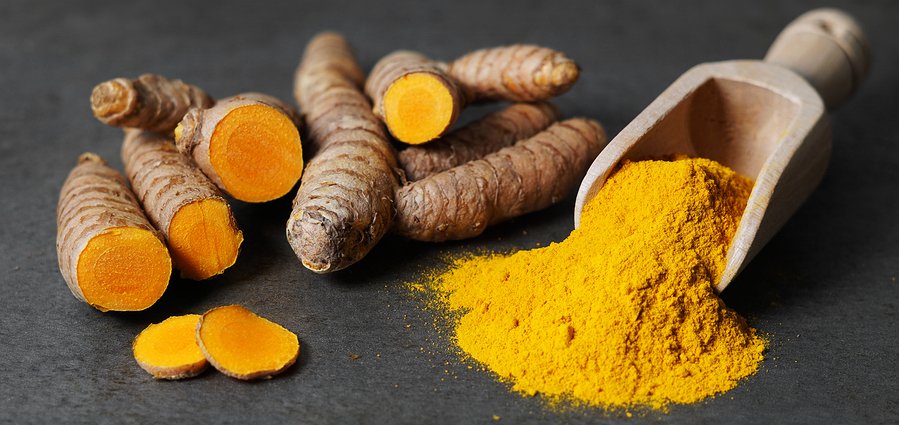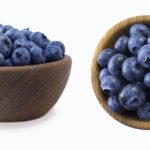Article Summary:
- Curcumin, the active ingredient in turmeric, has been found effective in treating bone cancer
- Curcumin is an anti-inflammatory agent, antioxidant, and cancer-cell killer
- Supplements are the best way to increase curcumin intake
Research on Tumeric For Osteosarcoma
One of most common forms of bone cancer is known as osteosarcoma. While it can occur at any age, osteosarcomas most frequently develop in young people between the ages of 10 and 30. Since surgically removing a malignancy from bones is difficult, osteosarcoma is typically treated with chemotherapy. But since chemotherapy is associated with dangerous complications for everyone—and the situation is even worse for children whose bones are still growing—alternative, natural treatments are being tested.
New research, which took place at Washington State University in Pullman, found that the spice turmeric may hold great promise for effectively treating bone cancer without all the side effects associated with chemotherapy.1Sarkar, Naboneeta and Bose, Susmita. “Liposome-Encapsulated Curcumin-Loaded 3D Printed Scaffold for Bone Tissue Engineering.” ACS Applied Materials and Interfaces. 15 May 2019. Accessed 6 July 2019. http://pubs.acs.org/doi/10.1021/acsami.9b01218. These results are based on an investigation that focused on the effects of turmeric’s active ingredient, curcumin, in people with osteosarcoma. Curcumin is an antioxidant that has anti-inflammatory properties.
Since pure curcumin is not readily absorbed by the body, the researchers focused on concentrating its bioavailability by placing it into a capsule comprised of fat molecules and housing that within a structure made of calcium phosphate. The structure was then used in bone implants. All the participants were provided with bone implants, but only some received the curcumin-based version. In just 11 days, those volunteers being treated with curcumin demonstrated a 96 percent greater inhibition of osteosarcoma cell growth compared to their peers in the control group. What’s more, the curcumin implants stimulated a greater amount of healthy bone growth.
What Makes Curcumin a Potential Cancer Fighter?
While this study was not designed to prove cause and effect, and therefore we can’t say definitively that the curcumin alone produced these positive results, it most certainly demonstrated a link between curcumin and slowing tumor growth. And if you know a little about curcumin, it’s not hard to see why that might be.
Curcumin Is Anti-inflammatory
Curcumin is a powerful anti-inflammatory that works by blocking NF-kB. NF-kB stands for Nuclear Factor kappa-light-chain-enhancer of activated B cells. It is not a single protein, but a small family of transcription factors that play an important role in almost all human cells. In addition to switching on the genes that produce inflammation in the nuclei of cells, NF-kB i controls transcription of DNA, cytokine production, and cell survival.
Curcumin Is An Antioxidant
Free radicals do a lot of damage to our bodies over time at the cellular level and set the stage for diseases such as cancer. But antioxidants like curcumin can prevent free radicals from wreaking havoc. And as an added bonus, studies have found that curcumin triggers the body’s antioxidant enzymes into action to offer further protection.
Curcumin Is A Cancer Cell Killer
The current research is not the first to provide evidence of curcumin as a potent cancer fighter. A 2015 study at the University of Manitoba in Canada showed that curcumin weakens and potentially even disables certain types of cell-signaling pathways, inhibiting tumor growth.2Devassy, JG; et al. “Curcumin and cancer: barriers to obtaining a health claim.” Nutrition Reviews. March 2015. Accessed 7 July 2019. http://www.ncbi.nlm.nih.gov/pubmed/26024538.
Adding Curcumin to Your Daily Routine
With the many health benefits of curcumin beyond cancer treatment and prevention—including protection from heart disease and dementia—it is wise to consider increasing your intake of turmeric. You can certainly add more of the spice to your cooking, particularly by trying traditional Indian dishes such as curries that rely heavily on turmeric.
But unfortunately, even if you eat foods flavored with turmeric every day, you will probably not gain the full advantages of curcumin because there is still just a small amount of it in the spice and your body will not easily absorb it all. Your better bet is to start taking a daily natural supplement that contains curcumin to ensure an adequate intake. Look for a supplement that balances out the three main chemical compounds—Curcumin, Demethoxycurcumin, and Bisdemethoxycurcumin—collectively known as Curcuminoids. Also, to increase your absorption, take the supplement with a meal that contains healthy fats since curcumin is fat soluble.
References
| ↑1 | Sarkar, Naboneeta and Bose, Susmita. “Liposome-Encapsulated Curcumin-Loaded 3D Printed Scaffold for Bone Tissue Engineering.” ACS Applied Materials and Interfaces. 15 May 2019. Accessed 6 July 2019. http://pubs.acs.org/doi/10.1021/acsami.9b01218. |
|---|---|
| ↑2 | Devassy, JG; et al. “Curcumin and cancer: barriers to obtaining a health claim.” Nutrition Reviews. March 2015. Accessed 7 July 2019. http://www.ncbi.nlm.nih.gov/pubmed/26024538. |












Hey, very nice blog. I came across this on Google, and I am stoked that I did. I will definitely be coming back here more often. Wish I could add to the conversation and bring a bit more to the table, but am just taking in as much info as I can at the moment. Thanks for sharing.
As I believe, curcumin should be taken with fresh-ground black pepper, since this greatly increases its absorption (some say 17 times, some say much more).
A few years ago, I suffered a fall (a ladder slipped) causing bruised ribs. I had suffered bruised ribs a few yers previously, took nothing, and suffered intense stabbing pains during about 10 days, with nagging pains continuing until 5-6 weeks after the incident. This time, I took tumeric spice (active ingredient curcumin), putting a bit of water in a glass, adding about 1/4 level teaspoon of turmeric and ground black pepper on top. 2 times a day. Intense stabbing pains disappeared after 3-4 days, all pain ceased within 2 weeks!
I know this is not proof, but it is extremely suggestive.
My dog had a cancerous tumor that was removed surgically. Before the incision from that surgery was healed another tumor came up next to it. After reading about another dog with the same diagnosis whose cancer was healed with curcumin I gave it to my dog. Her tumor began to shrink within 10 days and eventually disappeared completely. She has not had a recurrence and is tumor-free. Many dogs with cancer are subjected to the same cut, burn, and poison therapies given to people and it’s just not necessary.
I am hoping that you will offer Turmeric /vegetarian capsule and either with the fat you talked about or fermented, I know that everyone is touting black pepper because it helps absorption however there are problems if taken long term, it would be better to use cayenne or I believe fermented turmeric. I take this product daily for RA, I have just started purchasing your products and am very happy with them but I would like to get my Turmeric in larger quantities with my monthly order from you. Thank you JD